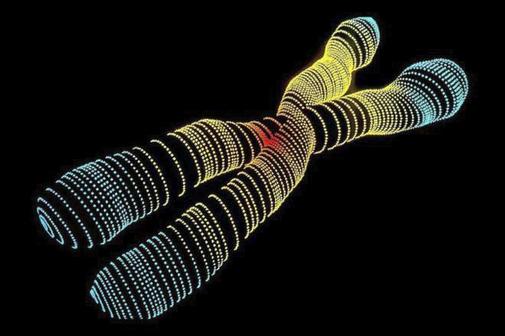- Scientific milestone: the genetic 'cut and paste'
The appearance just five years ago of the gene editing technique known as CRISPR, or genetic scissors, promised to revolutionize research in countless fields: from crop modification to the elimination of diseases so far incurable. A revolution whose results begin to glimpse. This Monday a team of American scientists published in the PNAS magazine the details of an experimental treatment against triple negative breast cancer that applies this system to stop the growth of tumors, by injecting a nanolipogel.
The researchers at Boston Children's Hospital present the results of a method that is still in the principle test phase (PoP), the stage prior to the first human trials, and that at the moment has been tested in tumor cells extracted from patients live and in mice. For now, his technique has been able to penetrate tumors and destroy a gene (lipocalin 2) related to the transformation of normal cells into malignant. The elimination of this oncogen inhibits the aggressiveness of cancer and its ability to cause metastasis.
In this way, an efficiency of 81% in the edition and elimination of human tumor tissue has been achieved. Likewise, the team of the North American center affirms that the treatment reduced the growth of the tumor in a 77% in the mice and that it did not show any toxicity for the healthy tissues. The results support the viability of a genetic treatment against triple negative breast cancer, a variety that has a high mortality rate and a very aggressive biology.
Apply CRISPR to treatments
CRISPR is the acronym in English of Clustered Regularly Interspaced Short Palindromic Repeats, a term coined by Spanish researcher Francisco Mojica. In 2012, a team led by Jennifer Doudna and Emmanuelle Charpentier revealed that they had successfully reprogrammed this natural defense mechanism observed in bacteria to edit genes. The new tool - called Crispr-Cas9, for the natural Cas9 protein on which it is based - has allowed scientists to cut and repair DNA more efficiently and cheaply. A year later, Harvard scientists used it to modify the genome of human cells in the laboratory.
Since then, scientists are looking for ways to translate CRISPR into effective therapies, but its application has been hampered by the lack of effective systems to administer it . This new study represents the first successful use of genetic scissors focused on stopping the growth of a carcinogenic tumor in a living being, in this case in mice. The new system uses antibodies to selectively recognize cancer cells without affecting healthy tissues.
"Using a soft particle allows us to better penetrate the tumor, without side effects and with a greater load," explains Dr. Peng Guo, first author of the study, "thus our system substantially increases the effects of CRISPR administration." While more rigid particles can be trapped by cellular nutrition machinery, in this case the gel manages to penetrate more efficiently, being more flexible, and being able to fuse with the tumor cell membrane and deliver payloads directly. inside.
Aggressive cancer
The triple negative represents around 12% of total breast cancers and is common in women under 50 and in carriers of a mutation of the BRCA1 gene. The options for effective treatment against it are limited: standard chemotherapy has been associated with low treatment response rates and considerable toxicity, forcing researchers to look for new options.
On the other hand, although this study has focused on this particular variety of the disease, the researchers believe that the CRISPR model they have developed could also be adapted to treat pediatric cancers and even to administer conventional medications more efficiently. "Our system can effectively apply a variety of medications to the tumor, accurately and safely," says Dr. Marsha Moses, co-author of the study. "The team is already working with several companies interested in this technology."
According to the criteria of The Trust Project
Know more- Science and Health
- Health
MusicThe summer song is good and necessary: "It's like a medicine against stress"
HEALTHCrimea-Congo, Zika, Chikungunya, Dengue ... This is the exotic virus that stalks us
Food infections What is listeriosis and what are its symptoms?

